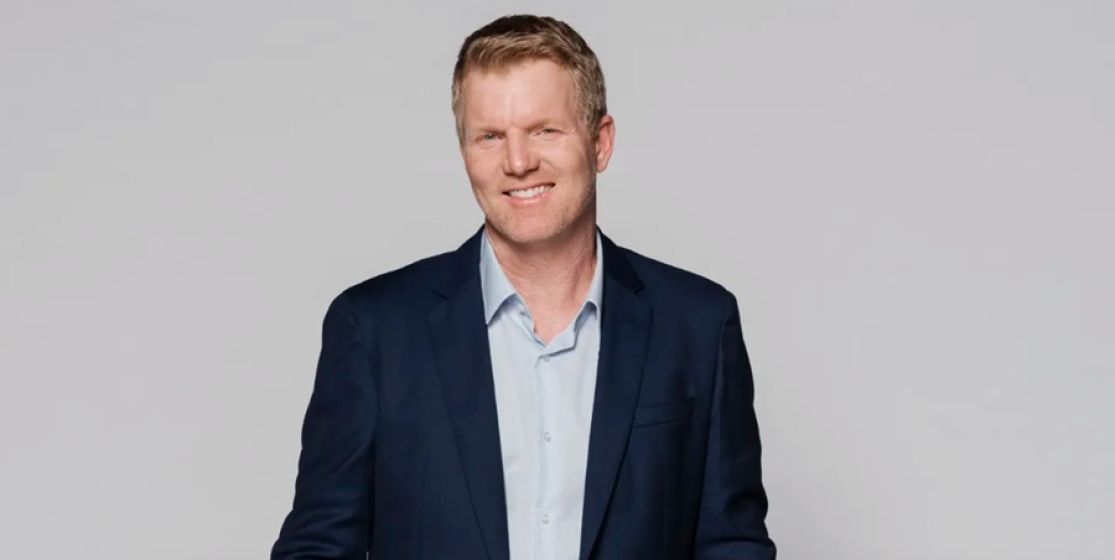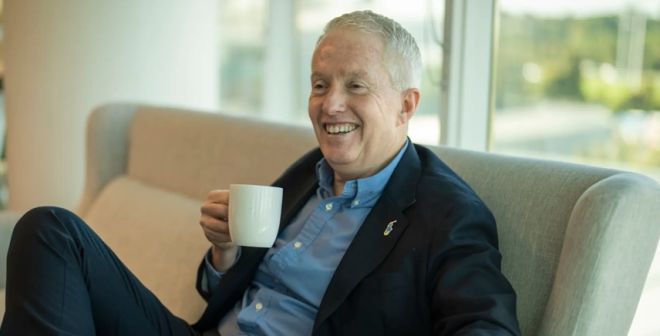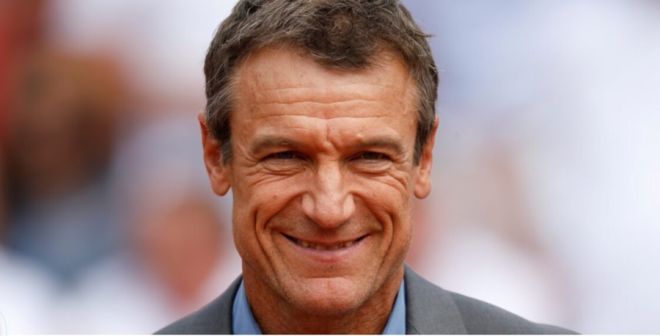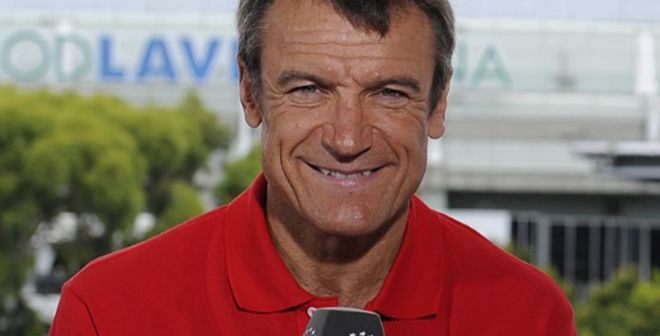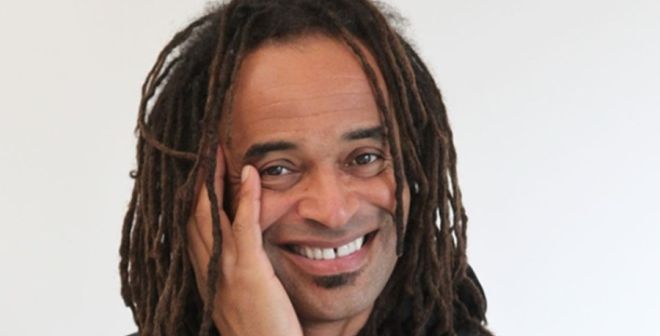Q. Jim Courier, 23 titles, 58 weeks No. 1, 14 million in official prize money, Hall of Fame 2005, four majors. If I asked for one highlight, what would you say?
JIM COURIER: Well, first of all, I'm disappointed that we're talking about me. I thought we were talking about some other really great players (smiling). Craig, it's always good to talk to you.
One highlight? Look, it's all really one highlight. Getting to live your dream is a highlight, and that's what I have been doing ever since I picked up a tennis racquet.
The one that is, of course, the life changing moment is when you go from being a tour player to a major champion, and that was the moment that happened to me in 1991 at Roland Garros. So, if you have to pick one that led me to be sitting here talking to you, it would be that moment. But there are so many more that came before that to get you there and then so many more afterwards that were meaningful, as well.
Q. One of the things I remember with you as a player was the ....
JIM COURIER: My sunburn?
Q. Yes, exactly. (Laughter) The intensity that you had on the court. And I think you were a pretty intense guy off the court, as well. If you had to do things over again, would you do things differently?
JIM COURIER: I mean, look, we can only live our lives with the information we have at the time, right? So, everyone has perfect vision in hindsight. Everyone would look for inspirations in different places and shift and try and be perfect. But we don't get to live that way. We live with the information we have, and we make the choices, and we roll with them.
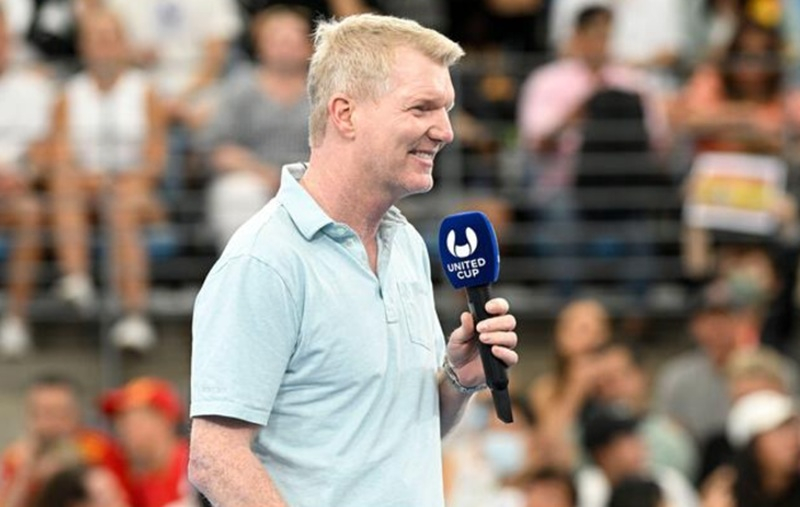
So, I don't really have a rearview mirror that I look in very often on my career. I'm grateful, more than anything, that I have had it. It's been far more than I could have ever dreamed of as a little boy.
I was intense, and I still have intensity in places in my life, but that intensity led me to being determined and being able to take the punches and get back up and keep going.
I don't think I would you know, I couldn't hope to have had a better career, period.
Q. What are some of the intensities you just touched on now that you still have?
JIM COURIER: Well, I'm still very intense with trying to be very good at my current job, which is television. For 150 days a year I work my tail off to be as good as I can be and to make it flow for the people that I get to work with.
I'm pretty intent on being a really good father and a good husband. That takes attention, that takes detail, and it takes compassion and all those things you don't need as a tennis player. You have to find those other areas of your life to connect those dots, but it's still an intensity in a way.
Q. I mentioned 23 titles. I always like to ask players where they keep the trophies that they have won. Do any particular ones have a particular pride of place, or where have you got them?
JIM COURIER: The ones that I have kept, and I haven't kept them all, but the ones that I have kept are in boxes.
Q. Really?
JIM COURIER: Uh huh.
Q. So, they are not on show or anything like that?
JIM COURIER: No.
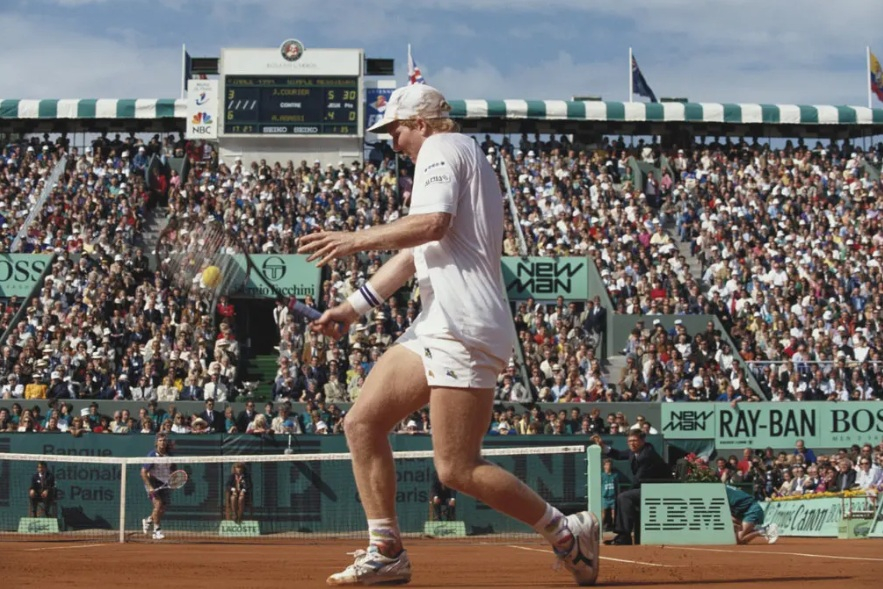
Q. Why is that?
JIM COURIER: Well, it's a fairly intentional move. I'm a family man now. Of course, my children learned through their friends at school, really through their schoolmates' parents, what I used to do. They didn't know much about it before.
We try to keep our kids grounded and doing the things that they love to do and not feel any presence or shadow or anything like that. You know, there is an intent to make sure that they see Susanna, their mother, and me as normal folks who are no different than the other parents that their friends are dealing with. Everyone's got things to be proud of, but you don't have to showcase them all the time.
You know, if they want to see them, we'll certainly open up the boxes, they'll be able to look at them, but until that day, that's where they'll stay.
Q. Do they ask you much about your playing days?
JIM COURIER: Now they do. Yeah, now they do, because both of our boys really like sport in general, and tennis is certainly one of their favorites. So, they know all about the current players. They know that I'm lucky enough to get around and meet them, and they have been fortunate as a result of that to also get to meet some of the people that they admire.
So, they do ask questions about my career, but thankfully they're more interested in the current players.
Q. Meeting and then marrying Susanna, it's been a long association, no doubt a wonderful one.
JIM COURIER: Yeah.
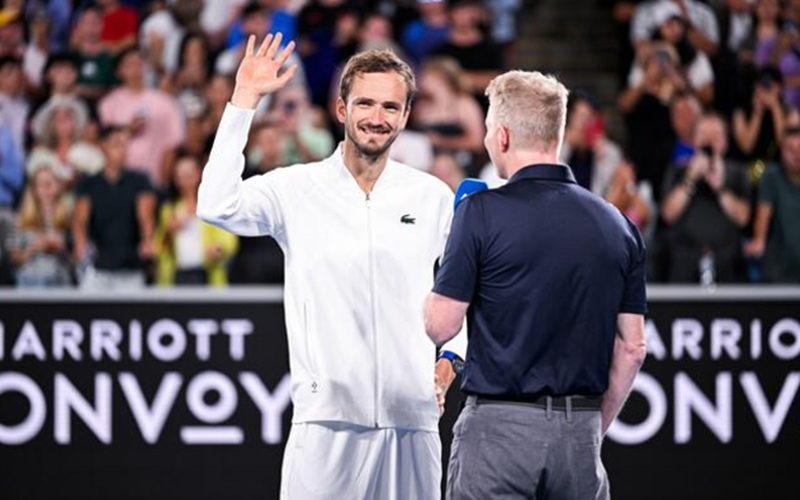
Q. How much has she changed you? And how much have the boys changed you?
JIM COURIER: Yeah, well, look, I think anyone who lived a single life as long as I did, you can fall into certain places where selfishness is sort of second nature. Having a partner that you really share everything with, of course it changes you. It makes you far more human. And children, of course, exponential. Yeah, it's been great.
Q. Kellan and Carson, great names, by the way.
JIM COURIER: Thank you, yeah.
Q. They're very young, but can you explain the pleasure, the excitement, the emotions you get out of the two of them?
JIM COURIER: I don't know that you can explain that feeling. I mean, I think people that, you know, pet owners, anyone who has something that is a living being that you're super connected to, it's hard to describe those feelings.
But if you know, you know. I think you don't know until you know either. That's kind of the joy of parenting is opening up new doors.
Q. You just said that tennis is one of their favorite sports. Have they shown any inclination to following in their old man's footsteps?
JIM COURIER: We'll see. It's too early. They're not 10 yet. They're 7 and 9. They'll pull us into whatever direction they ultimately want to go, but we certainly have provided them racquets and lessons and opportunities to play with their friends and with their parents. Susanna played at a pretty high level of college tennis, too.
We certainly have exposed them to tennis and other sports, and they love basketball and they love football. You know, they also will follow their friends into fun things, too. So, it's not always going to be the parents that kind of drive that interest.
Q. I don't know why I remember this, but when you first left tennis and you first went into I think one of your very early broadcast jobs with TNT at Wimbledon, you were wandering back into the broadcast center at Wimbledon, and you said, "If only I knew how hard you guys worked."
JIM COURIER: Yeah. Long days, right? Media work long, long days, and I think written media work far longer days than television media, as well.
I have certainly had a newfound appreciation for the fact that it's a real, real job, and it comes with pressures, as well. Yeah, it certainly opened my eyes. It's why I have long thought it would be wise for the tours to have the players shadow media, shadow the transportation people, shadow the marketing groups at the tournaments and get just a better understanding of how the entire engine works of this beautiful machine and have a little bit more empathy.
Q. Yeah, I mean, absolutely I think it would give them a different appreciation and understanding of what goes on really behind the scenes.
JIM COURIER: There is no doubt. I mean, it's easy to be insular when you're a professional athlete, and it's certainly easy to not pay attention to anything else other than what's immediately in your orbit. It's a big, big group of folks that are pushing, you know, this big tennis ball up the hill.
Q. When you started on the broadcast side, was it a case of let's try this and see how it goes? Or were you really making a concerted effort to get into that side of tennis?
JIM COURIER: No, I fell into it. It was something I was intrigued by, but it wasn't something that I knew that I was going to be interested in.
I, of course, didn't know how it worked at all and was fascinated once I went into a production truck and got to talk to the people that actually put it up on the air and see how much effort and intelligence it takes to put a broadcast together. Like anything that comes across looking easy, there is a lot of moving parts to it.
I'm still fascinated by it and intrigued by all the interesting, creative minds that are needed to keep pushing the product forward, whether it's new graphics packages like you have these amazing graphics packages here at the Laver Cup and all the innovation that they bring to it to just simply how in the world does the signal get from here to my house in seven seconds? But it does. It gets from Berlin, Germany, to Los Angeles, California, in about seven seconds. It's kind of remarkable.
I certainly don't take it for granted. I'm very fortunate to be able to continue to do something I love.
Q. Who do you like interviewing?
JIM COURIER: Who do I like interviewing? Roger was always the standard bearer, because you could ask terrible questions, which I certainly can and still do, but certainly initially I was terribly unprepared to be on the court interviewing people, and Roger bailed me out. Andy Roddick bailed me out, Marat Safin, these are guys that bailed me out early on.
Then later on, you get really comfortable in a way that allows for a little bit better questioning. And then you have people like Daniil Medvedev who are super interesting, super intelligent, and they have lots of ways to answer simple questions that are interesting for the audience, which is that's who we're going for.
Q. Can you believe that it's pretty much a quarter of a century since you retired from playing?
JIM COURIER: I do. I think about it often, actually. I'm kind of tracking how far past my, like, I played about 13 years on tour, and I'm almost double that time off tour.
So, I don't think as you age you can help but kind of refer back to those moments in your life and signposts, and particularly with children, you start to go, oh, I remember when I was 9. That's a weird feeling, too.
Q. You once said, and I noticed this the other day, "You have to be extreme to be exceptional." What did you mean by that?
JIM COURIER: Oh, I think ultimately it's an extreme commitment if you want to be exceptional. It's the 10,000 hour concept if that's what it takes if you want to perfect something, and certainly in tennis it's such a complex sport relative to a lot of others.
There are so many intricate parts: the forehand, the backhand, a volley, slice, topspin, overheads, angles, endurance. There is just a lot of components to it. You just can't show up and say, I'm a great athlete, therefore I'm going to be a great tennis player.
So, you know, if you want to be at the top of this mountain, you've got to be really extremely committed. And that's what I meant.
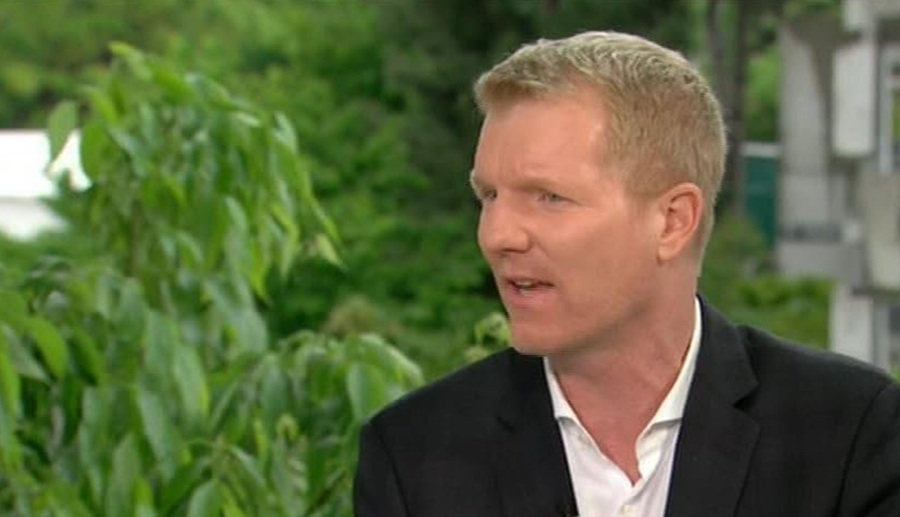
Q. Going back so many years, when you look back at the two Australian Open victories and diving into the only river in the world that floats upside down, the Yarra, did you think, what was I thinking when I did that? Do you regret doing that?
JIM COURIER: I don't regret doing that, but if there is anyone to blame for it, don't blame me, blame Brad Stine who is still coaching in a magnificent level, working with Tommy Paul now, and has worked with so many players since we started working together in the early '90s, but it was Brad's idea and it was his challenge. We both did it together twice. Both of us suffered equally.
Q. We talk about this purple era, golden era of tennis with Roger, Rafa, Novak, Andy, et cetera. But I think people forget about that era that you played in. Pete, Andre, you, Michael Chang. What was it like being in the midst of that era?
JIM COURIER: I think people certainly still remember Pete and Andre as rivalries for obvious reasons and also their historical place in the game and what they've achieved. So, I think they are very much still present.
But it was also a great time because we still had Mac, and when we first started, Connors was still around and certainly Lendl and Becker, Edberg, then Stich, and so we had a wonderful generation of American players, but we were surrounded by a lot of international greats, as well, guys like Rafter, Ivanisevic, Rios, all these guys were coming in, as you do. There is always new players coming in.
It was a magnificent time as the game was transforming into a powerhouse game, a very physical brand led by a lot of what Lendl and Thomas Muster did to build their bodies to be just monsters out there, and then the equipment, and as that changed and morphed what players were able to do with the ball, with the increased physicality.
Q. Tell me about the time when you were inducted into the Hall of Fame and that honor, regarded as the highest honor a player can receive in tennis.
JIM COURIER: Yeah, that was wonderful weekend. At the time I was 35 years old, or just about to be 35. My mom treated it as if it was going to be the wedding she would never attend for her oldest son. She would later attend a wedding, but it would be a few more years later.
We had a lot of people. It was a great celebration. I was part of a wonderful class with Jana Novotna, Butch Buchholz, and Yannick Noah. So, we got to all celebrate it together. It was pretty special.
Q. Any regrets?
JIM COURIER: No regrets. I'm here talking to you. Life's pretty good.
Q. Talking to me. That's a regret. (laughing)
JIM COURIER: No, it's not. That's a treat, always.
Q. Finally, what do you like and enjoy the most in your life and all you do?
JIM COURIER: Well, that's hard to pick. I mean, family first, right? That's first and foremost. Kids are still at an age where they want to spend time with us, so we are maximizing that.
But I love these moments where 150 days a year I get to come out and be with my old family and be a part of the circus.
More information about
Players

Novak Djokovic

Rafael Nadal

Roger Federer

Daniil Medvedev

Tommy Paul

Andy Murray
 Tennis Legends
Tennis Legends

Andre AGASSI

Boris BECKER

Pete SAMPRAS

Jimmy CONNORS

Andy RODDICK

Yannick NOAH

Ivan LENDL

Stefan EDBERG

Jim COURIER


